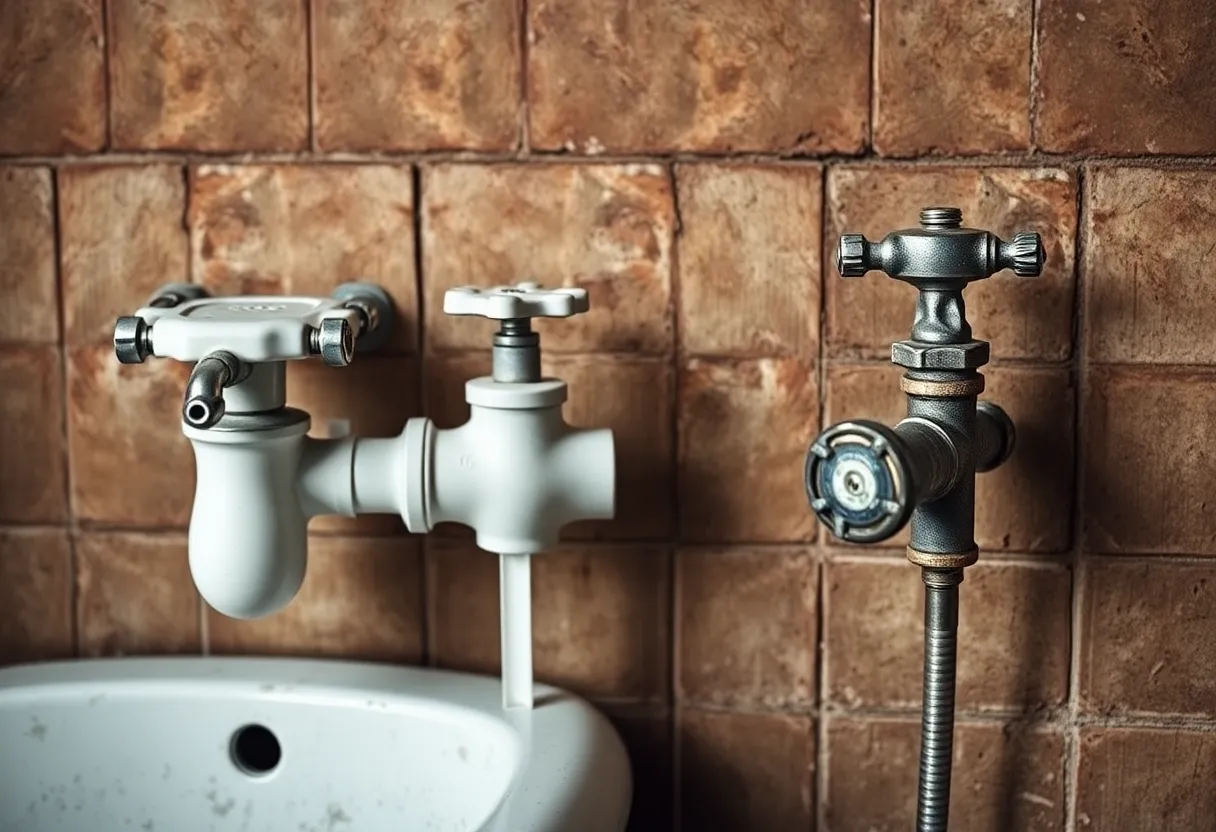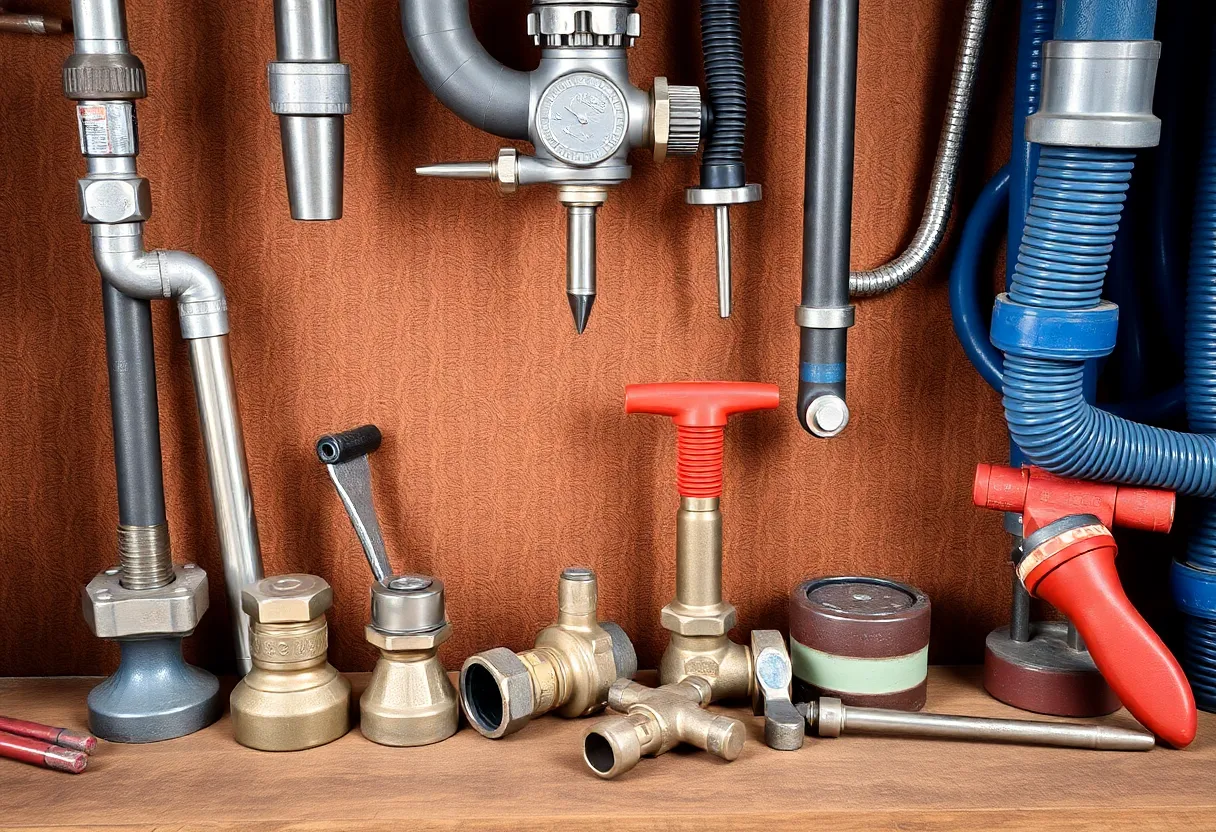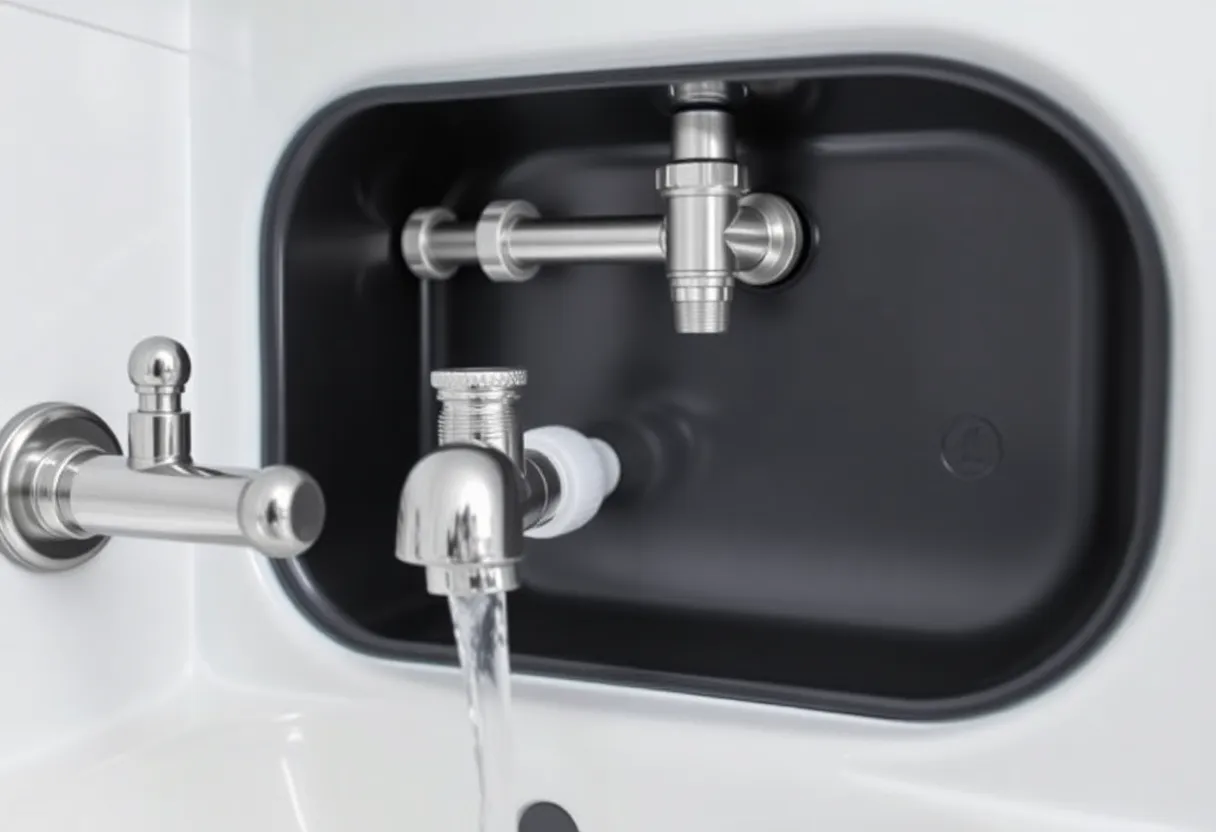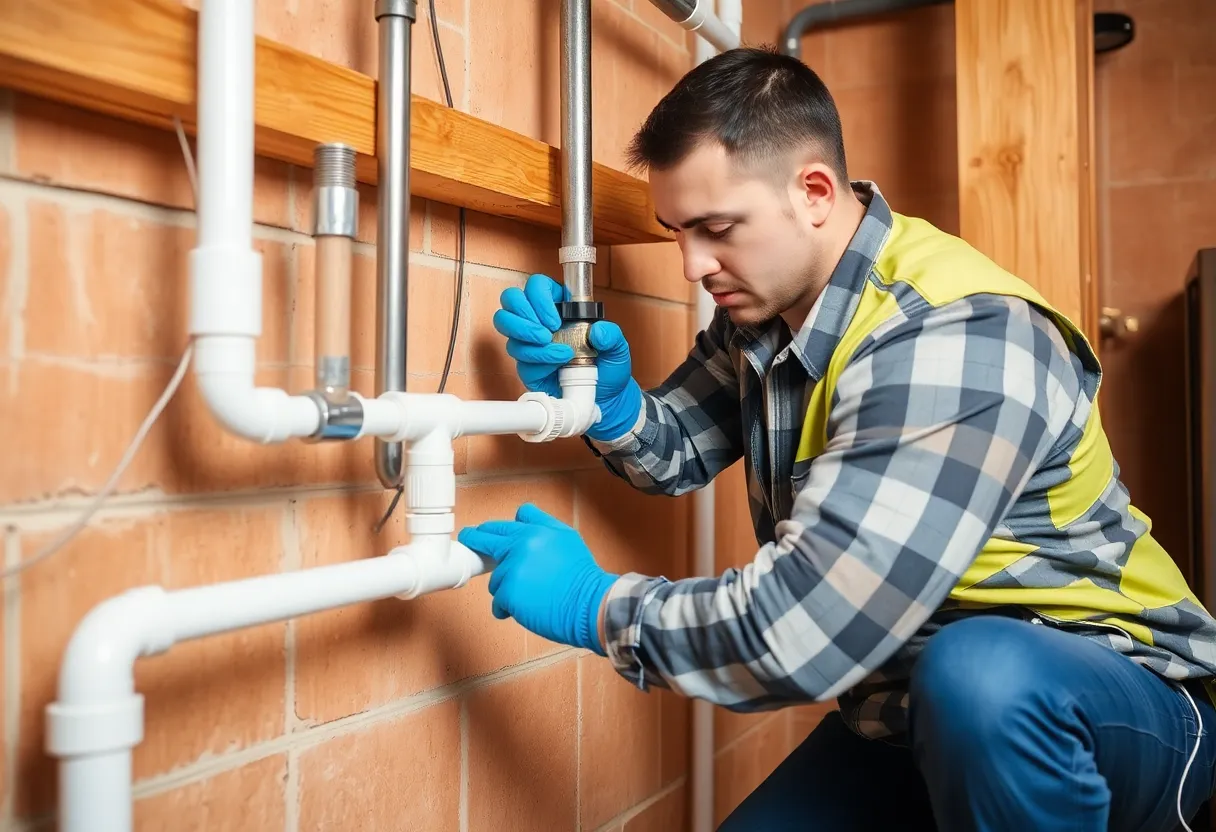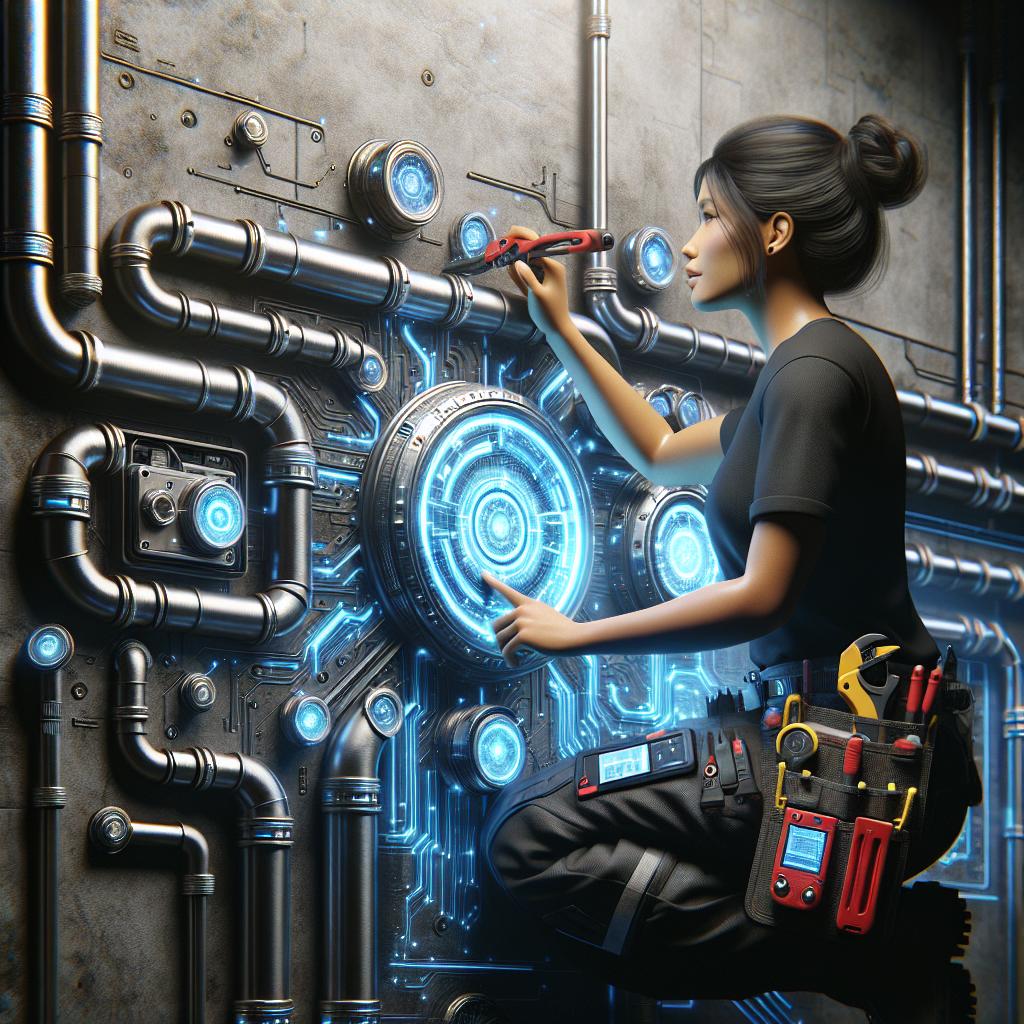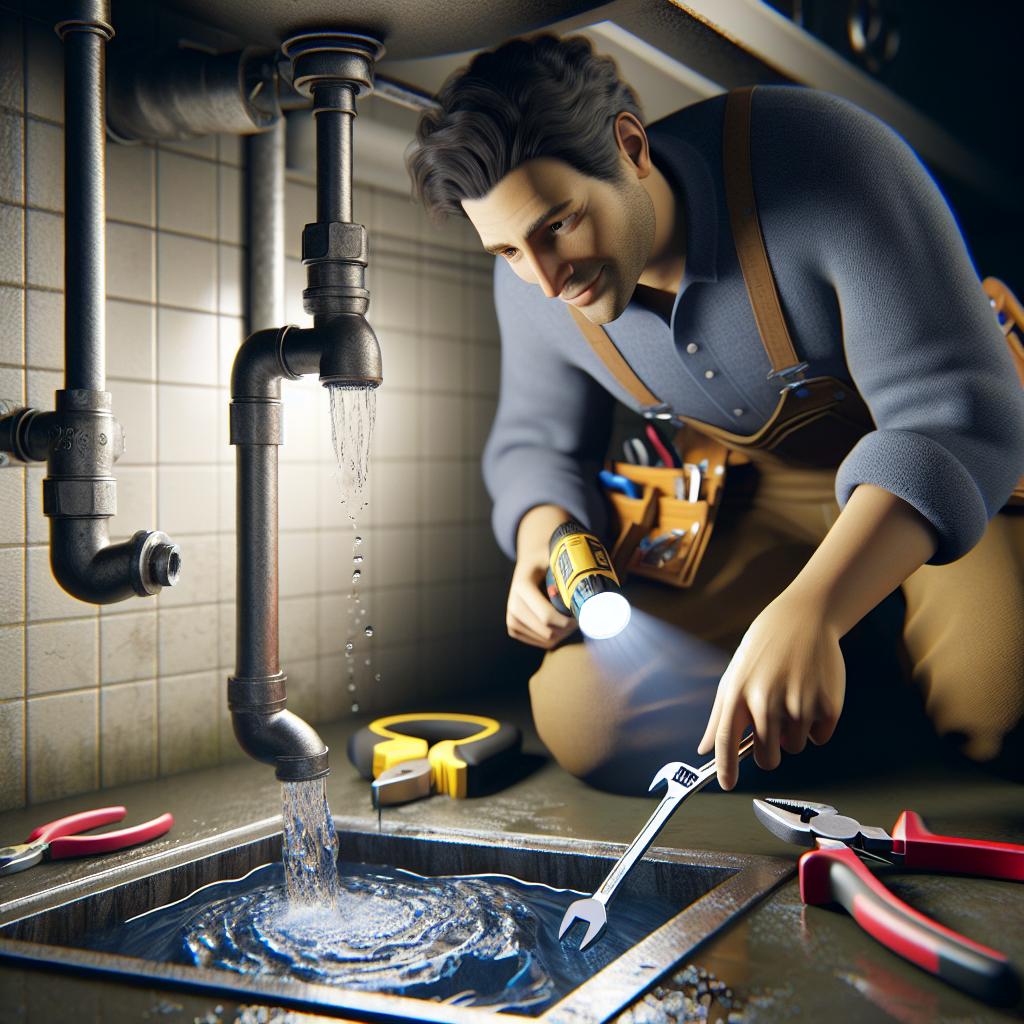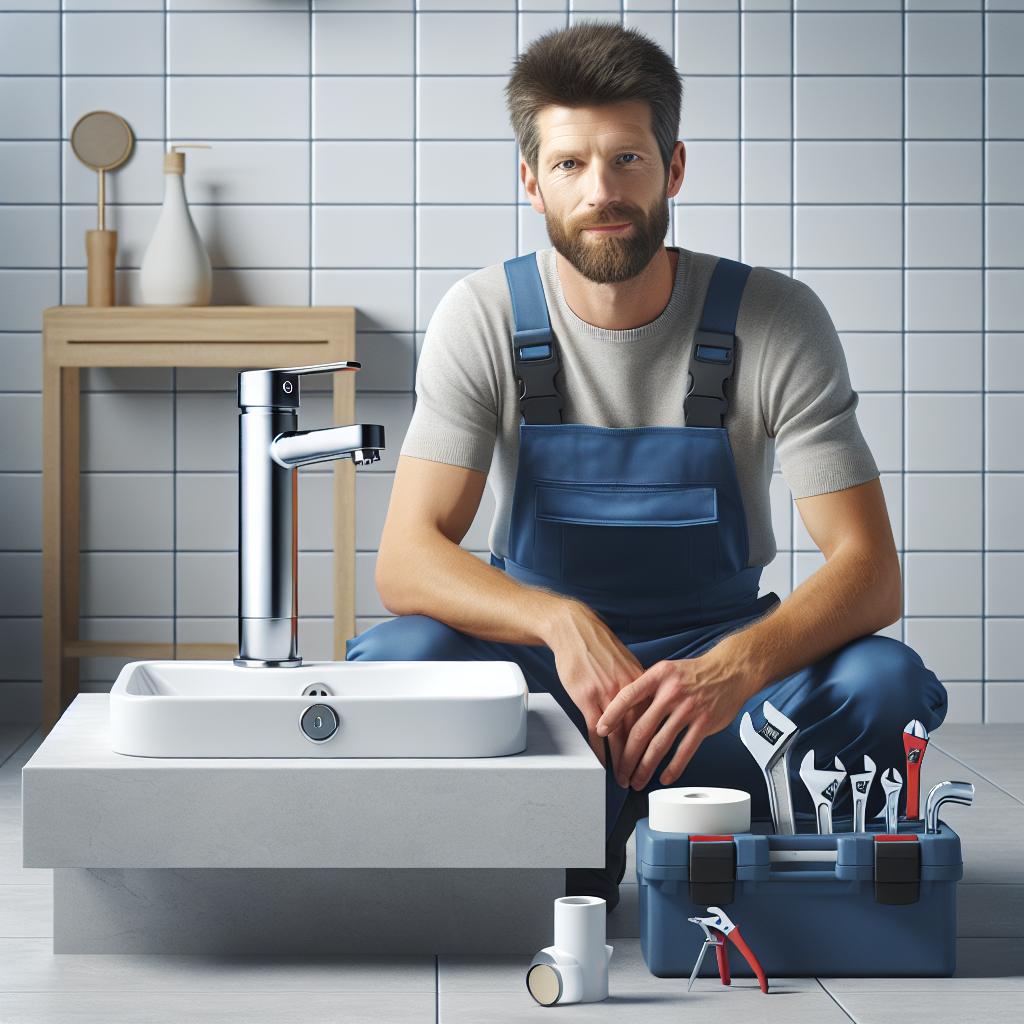The Plumbing Time Capsule: 10 Vintage Techniques Making a Comeback in Modern Homes
In the realm of home improvement and renovations, the old is often new again. As contemporary homeowners seek to blend modern conveniences with timeless aesthetics, many vintage plumbing techniques are making a resurgence. These techniques, often rooted in sustainability and ingenuity, offer progressive solutions to current plumbing challenges. Here’s a look at ten vintage plumbing techniques that are finding their way back into modern homes.
1. Lead-Free Soldering: A Return to Safe Practices
Lead soldering was widely used in plumbing systems until health concerns emerged regarding lead exposure. This toxic metal can leach into the water supply, posing serious health risks. Although lead solder has long been on the decline, the technique of using other metals, such as copper and brass, is making a wholesome comeback. Homeowners are now prioritizing lead-free soldering methods to ensure their plumbing systems are safe and efficient.
Why It Matters
Aside from compliance with modern safety standards, these lead-free methods maintain the same structural integrity and durability as their lead-based predecessors. The movement towards safe solder has prompted many plumbers to adopt eco-friendly techniques, thus ensuring the health and safety of families.
2. Galvanized Steel Pipes: Restored for Durability
Galvanized steel pipes were once the standard in plumbing due to their strength and longevity. Although they were phased out in favor of PVC and PEX piping, there is a growing interest in restored galvanized steel pipes. These pipes provide increased durability and can be recycled at the end of their life cycle, promoting sustainability.
Reimagining Old Materials
Today, innovative homeowners are using restored galvanized pipes as aesthetic features in their interiors. Exposed piping is a trend that marries vintage charm with modern industrial design.
3. The Return of Cast Iron Drainage
Once a staple of traditional plumbing, cast iron drainage pipes have fallen out of favor in light of lighter, plastic alternatives. However, cast iron is making a comeback due to its remarkable soundproofing qualities and durability. Not only can it stand the test of time, but it also muffles noises generated by flowing water, creating a quieter home environment.
Advantages of Cast Iron
Homeowners and builders appreciate cast iron’s resistance to corrosion and strength under changing temperatures. These pipes can be an elegant nod to the past and offer unparalleled performance.
4. The Revival of Vintage Fixtures
Vintage plumbing fixtures are finding their place in contemporary homes, with homeowners eager to install clawfoot bathtubs, pedestal sinks, and intricate brass faucets. These ornate designs are not only visually striking but often made from superior materials that outlast modern replicas.
Quality and Craftsmanship
With a focus on craftsmanship and style, these fixtures bring a level of artistry that is often lacking in mass-produced items. Additionally, many vintage pieces can be restored, giving them new life and reducing waste.
5. Rainwater Harvesting Systems
Rainwater harvesting is a practice that dates back centuries. This sustainable method captures and stores rainwater for reuse, reducing reliance on municipal water sources. Today’s homeowners are revisiting this technique with modernized systems that blend seamlessly into contemporary landscapes.
Benefits of Rainwater Harvesting
Using rainwater for irrigation, toilet flushing, and laundry can significantly lower water bills and lessen the environmental impact. With the right filtration, rainwater can even be used for potable purposes.
6. Gravity-Feed Water Systems
Gravity-feed systems, which use gravity for water flow rather than pumps, are a vintage technique that emphasizes simplicity and reliability. Originally created for rural homes, these systems are regaining popularity among off-grid living enthusiasts.
A Sustainable Approach
Gravity systems represent a hyper-local solution to plumbing woes. With minimal energy needs and great reliability, homeowners are reclaiming the old-world method of sourcing water naturally.
7. The Art of Pipe Insulation
Insulating pipes has been a technique employed for ages to prevent heat loss and freezing in cold climates. As energy costs soar, the long-lost art of pipe insulation is back on the radar for modern homeowners.
Maximizing Efficiency
Proper insulation reduces energy waste, equating to lower heating costs. Available in various materials, from foam to fiberglass, these solutions are both efficient and economical.
8. Flourishing With Vintage Water Heaters
Tankless water heaters have taken the market by storm, but traditional tank water heaters are seeing a resurgence, especially in aesthetic terms. Vintage-inspired, large-capacity water heaters are making their way back into homes, often selected based on looks as much as function.
Combining Functionality With Aesthetic
These heaters can be stylishly retrofitted with modern technology, including energy-efficient options without sacrificing the vintage finish. The combination of old and new meets both functional concerns and design desires.
9. Composting Toilets: Nature’s Way
Composting toilets may sound futuristic, but they are as old as the hills, used traditionally in many parts of the world, particularly in rural areas. These toilets use a process of aerobic decomposition to break down waste, ultimately transforming it into compost.
Eco-Friendly and Efficient
With more people becoming environmentally conscious, the marketing of composting toilets is virile again. They conserve water, are low maintenance, and are especially appealing to those in remote settings.
10. Natural Pipe Sealants: Earth-Friendly Approaches
Instead of chemical sealants that can leak into the water system, the return to natural pipe sealants, such as jute twine and beeswax, is taking foot in the plumbing scene. This approach highlights an eco-friendly commitment and aligns with sustainable plumbing initiatives.
Rethinking How We Seal
Not only are these materials biodegradable, but they are also effective at preventing leaks and protecting the integrity of plumbing joints.
Conclusion
A blend of old and new, these vintage plumbing techniques represent a movement towards sustainability, aesthetic appreciation, craftsmanship, and safety consciousness. As homeowners embrace the beauty of history in their modern living spaces, many are rediscovering the advantages that vintage plumbing offers. With these techniques making a comeback, they allow for not just functionality but also a unique charm that stands the test of time.
With thoughtful consideration and a fresh perspective on the past, the plumbing of yesteryears is breathing new life into the homes of today, proving that sometimes, what’s old is indeed what’s new!




